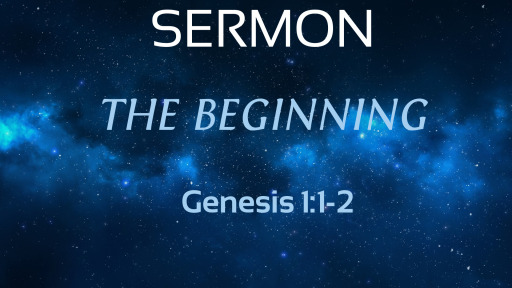The Beginning

IN THE BEGINNING. It sounds so simple, yet behind it lurk many of the ultimate questions of philosophy, theology, and metaphysics. Unfortunately, it is often the sad duty of the exegete to penetrate the sublime in pursuit of the tedious. The moment we begin to ponder the phrase, its cloudlike simplicity dissipates to reveal rugged mountain peaks. In the beginning of what?
This translation focuses on the state of the earth before God began the creative activity that is recorded in the Genesis account. Those who accept this translation believe that God’s historical involvement with creation began after the earth already existed in a formless and empty state. That is, the earth was formless and empty, and then God began to create. According to this view, Genesis does not address how the earth originally came into existence in its formless and empty state, but what God did with a world already in existence.
This traditional translation teaches that God created everything out of nothing. Therefore, his first step was to create the earth, which prior to that time did not exist, and he created it without form and population (empty). God then proceeded to shape and populate the world he had made as witnessed by the Genesis account.
Although the validity of either translation cannot be proven by grammar and syntax alone, the second translation is preferred for several reasons. First of all, a literary comparison of “In the beginning God created the heavens and the earth” (1:1) and “This is the account of the creation of the heavens and the earth” (2:4a) supports the idea that Genesis 1:1 is the first part of a literary framework within which the creation account is presented. Genesis 2:4a stands as the closing phrase for this literary unit and it refers backward, not forward, ending the account of creation begun at 1:1.
Another argument supporting the second translation points out that the phrase “heavens and the earth,” in 1:1, functions much like the English idioms “A to Z” or “top to bottom.” It is a phrase that covers not only the “heaven” and the “earth,” but everything in between as well. This reveals that God created, that he created in the beginning, and that his creative work involved the heavens, the earth and everything in between.
That the Bible should speak of the beginning provokes the world, provokes us. For we cannot speak of the beginning. Where the beginning begins, there our thinking stops; there it comes to an end.
Humankind knows itself to be totally deprived of its own self-determination, because it comes from the beginning and is moving toward the end without knowing what that means. This makes it hate the beginning and rise up in pride against it.
In the beginning...
The nature of the Bible’s teaching on creation is at once theological, doxological, and factual.
Theologically the Bible counters pagan cosmological theories both ancient and modern: this world is not ultimate reality. Doxologically not only the creation itself declares the glory of God, but even the teaching of creation in Scripture is presented as praise to God. For instance, scholars recognize the pleasing literary symmetry in the structure of the creation days in Genesis. Factually the biblical texts reveal something about God’s creative and formative actions in this world. Therefore, though the doctrine of creation is more than science, it is not unscientific—otherwise biblical theology and doxology are groundless.
The doctrine of creation—of the origin and persistence of all finite existences—as the work of God, is a necessary postulation of the religious consciousness. Such consciousness is marked by deeper insight than belongs to science.
